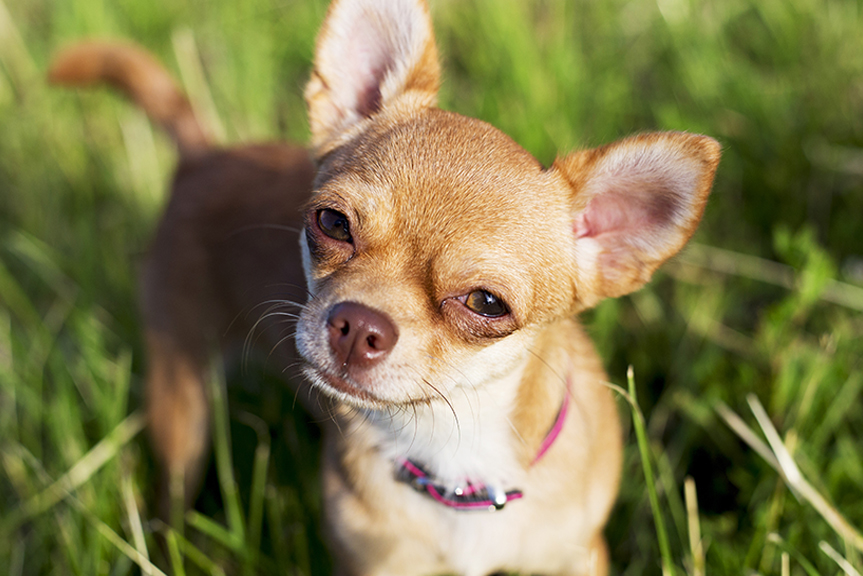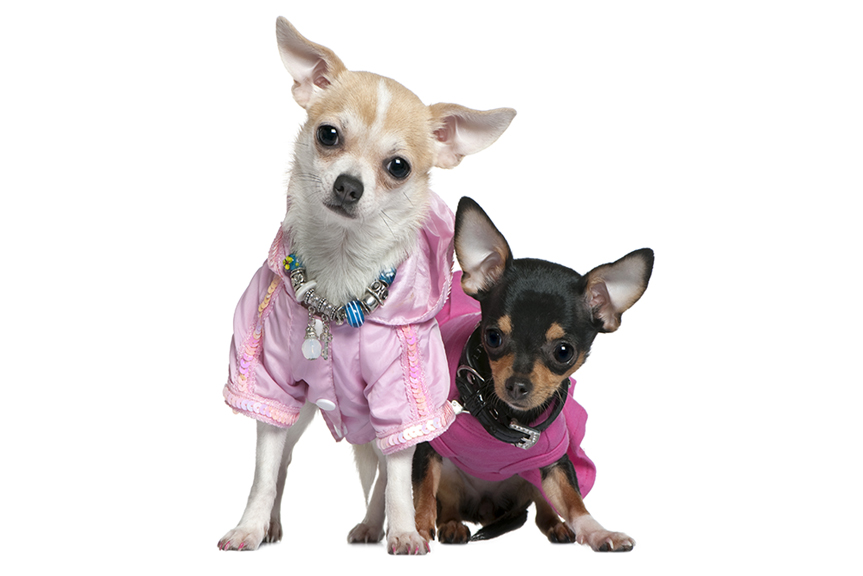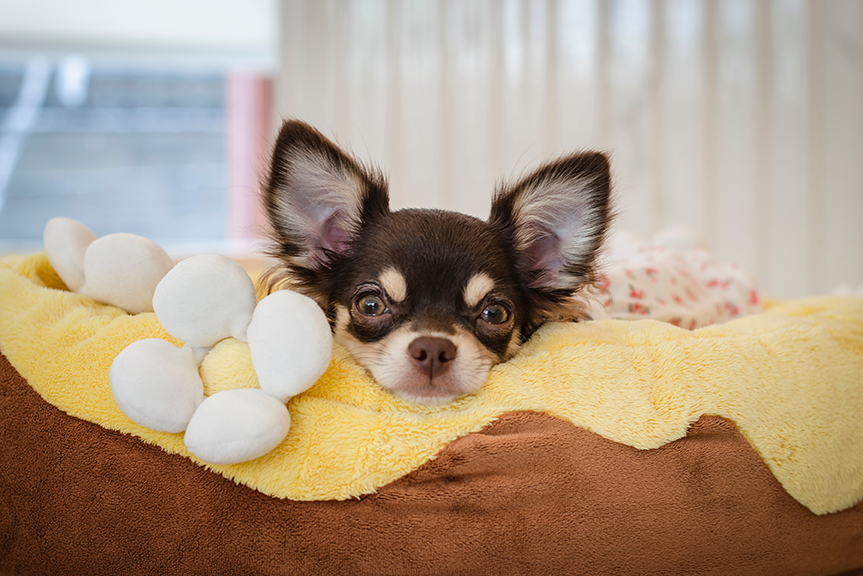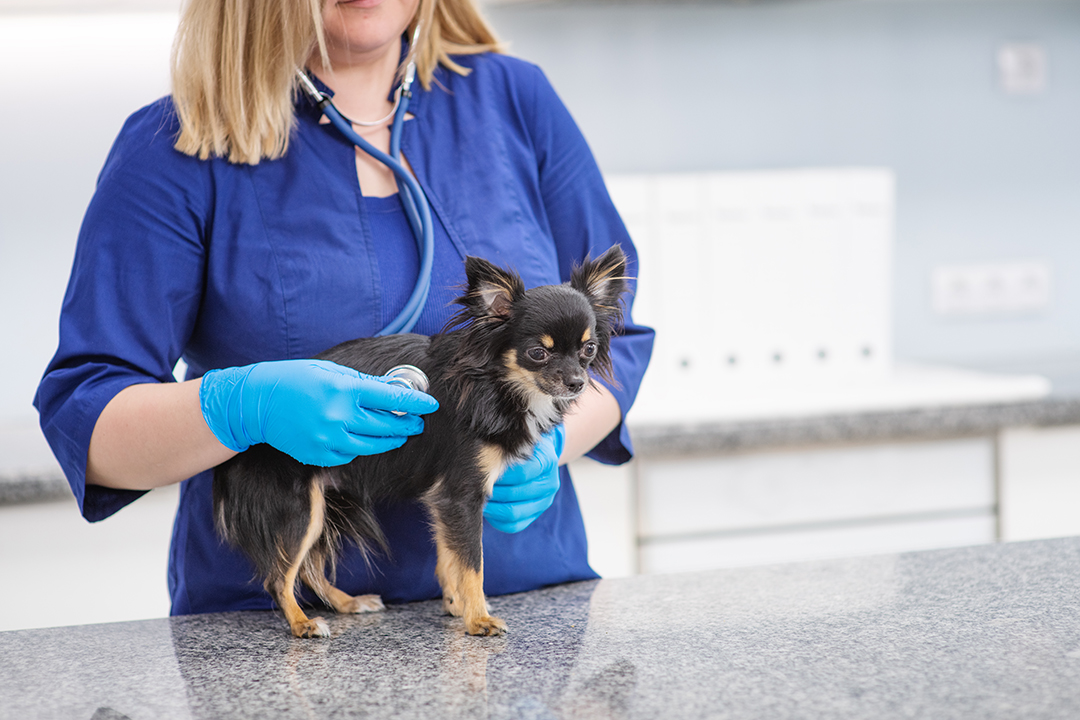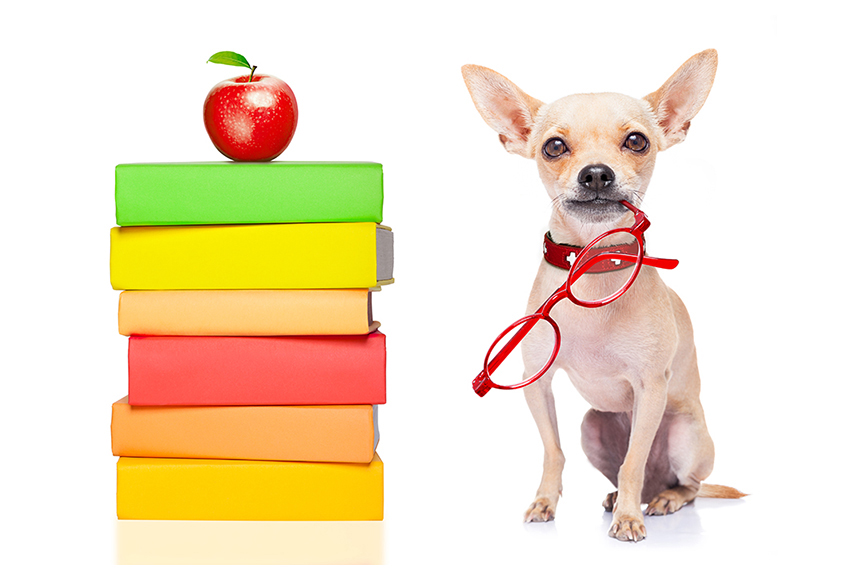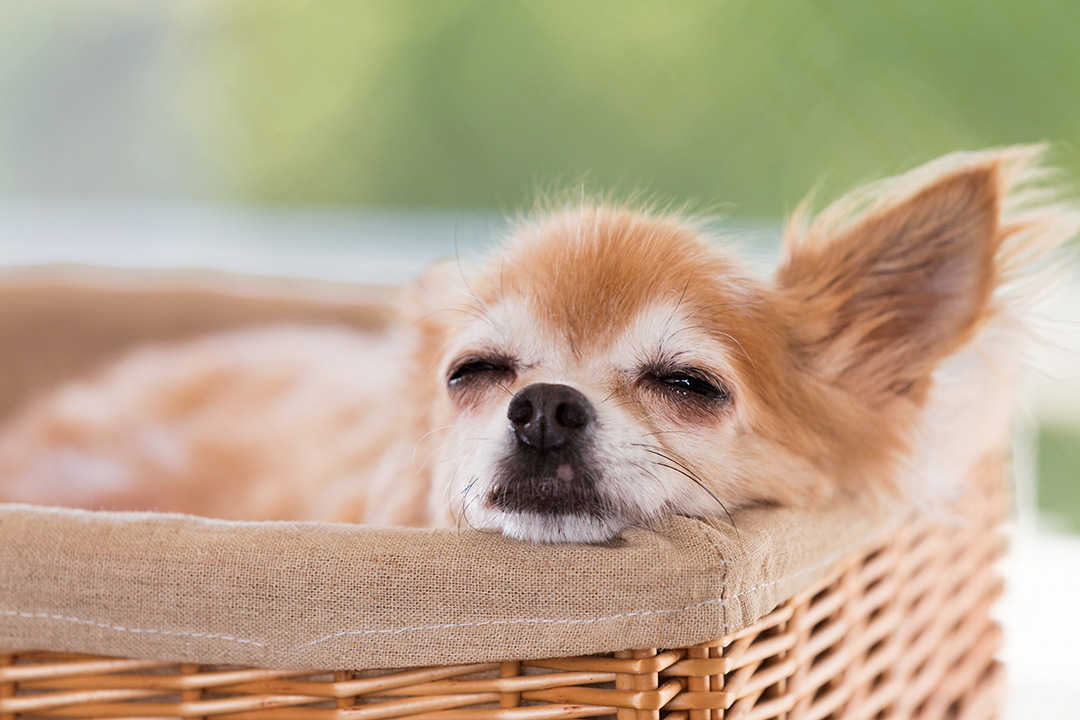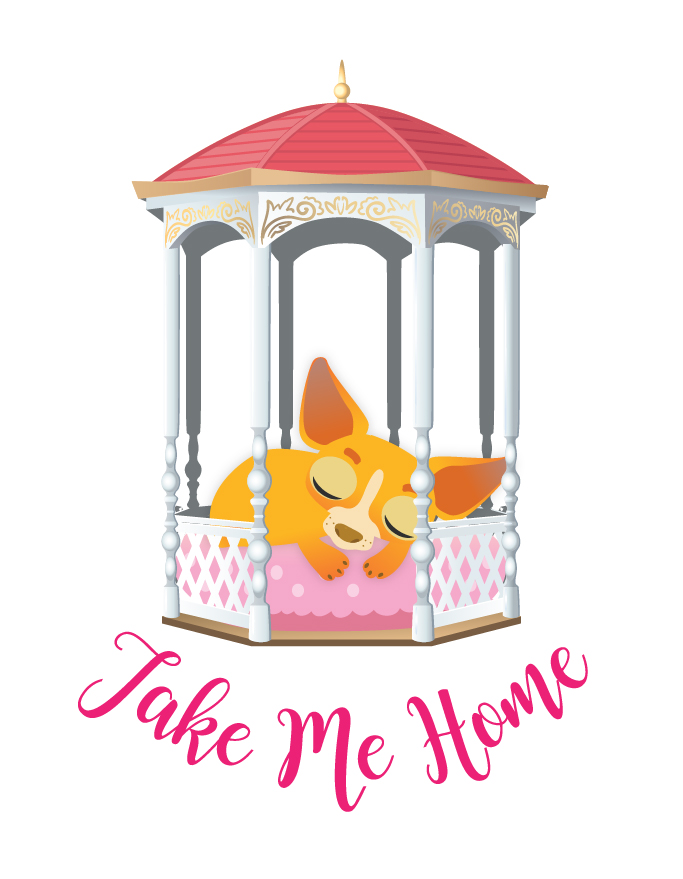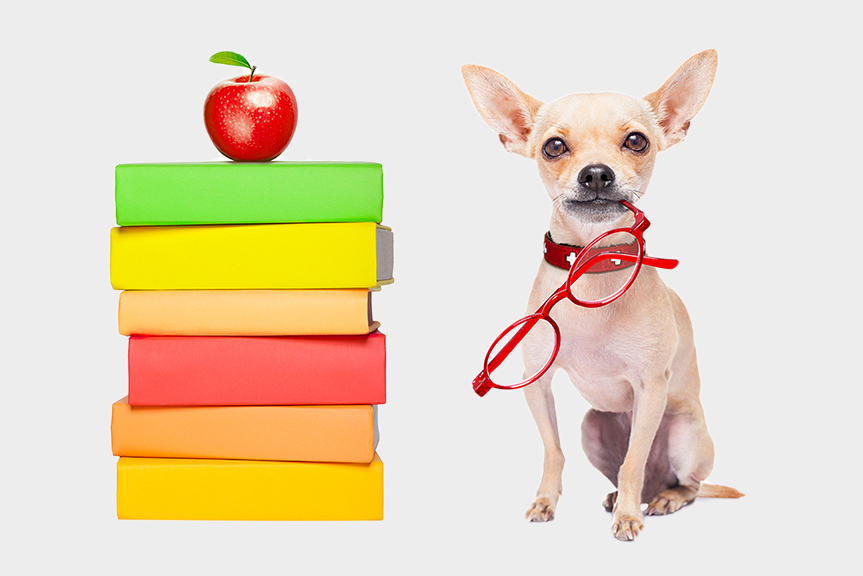Training Your Chihuahua
Overview
Think of the process of training your Chihuahua as a way of creating a stronger bond, instead of a painful chore. When you are bringing in the groceries, you do not want to worry that your Chi may run outside and possibly get hurt. You want her to know and understand that she needs to sit and stay to be safe. Make training fun and exciting for your new puppy including rewarding her with play, treats and toys for her good behavior. Your well-trained Chi will be a happier, healthier, and safer pup.
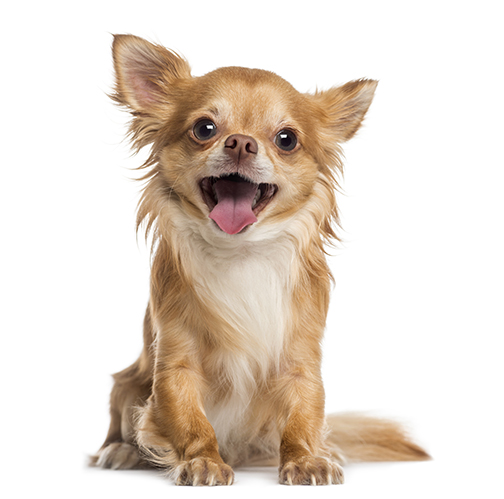
Practice with Positive Training
Long training and forceful sessions do not work. Professional trainers and scientists have proven that 15-20 minutes sessions using food training is remarkably effective. Initially you can guide your dog and then reward her for the correct response. You can continue this process and slowly start to randomly reward her.
Professional trainers recommend the following sequence: name, command, action, and reward. First state call your puppy’s name (e.g. Noony), state your command, next continue to use the same word and tone each time.
Give your dog time to understand the command and perform the action and then reward with “Good girl” or similar and a treat immediately after the correct action is completed. It is important to reward as soon as possible after the command is completed so they understand the association.
If you start your training with a young puppy, make your training session and short and concise. Not to worry, it is never too late or too early to start educating your Chihuahua.
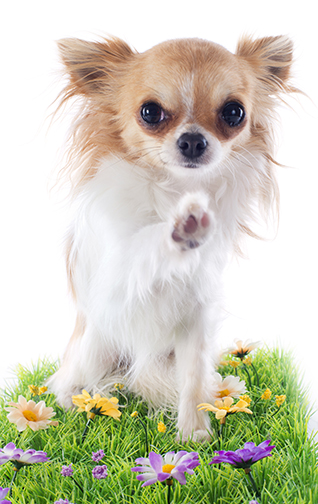
Basic Training for Your Pup
Basic essential commands your Chi should know are Sit, Down, Stay, Come and Heel. Training is not about controlling your dog; learning to come or stay could save your pup’s life. The Come command should always be associated with good things. You want her to respond to her name and the command, “Noony, come”.
You can have a friend or family member hold her lightly and then state her name with your command with enthusiasm. Never call your dog to scold them. Generally, your dog soiled your floor long before you noticed it, so calling their name to scold them will only create a negative association with you calling your pup.
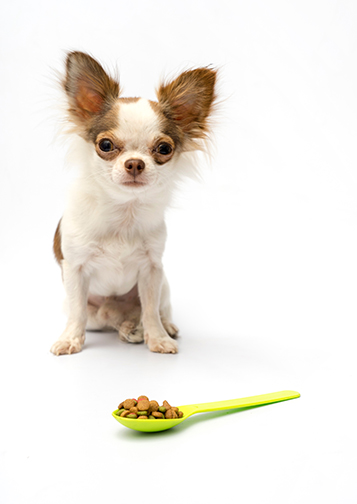 |
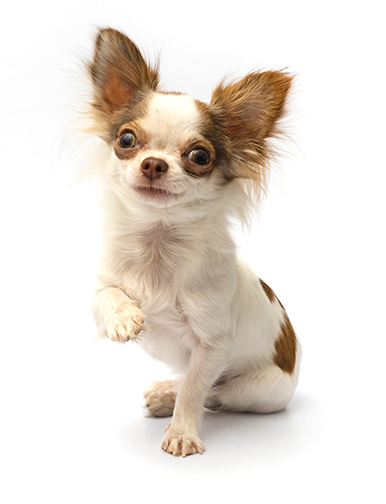 |
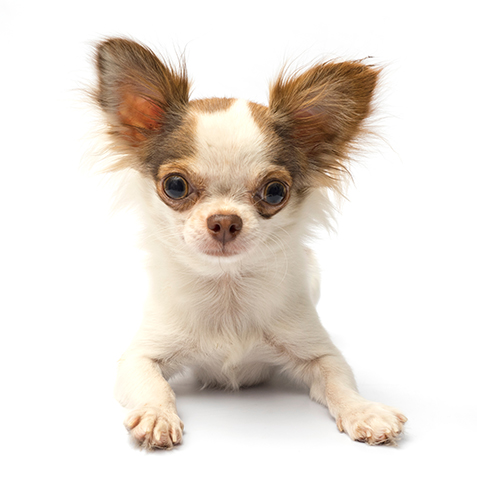 |
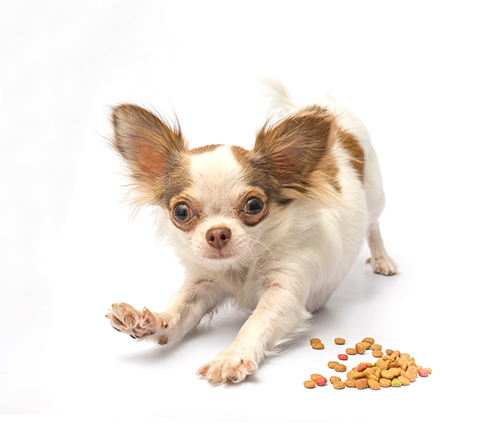 |
When teaching your dog to Sit, a good practice is to hold a treat just above and slightly behind their eye level and state “Noony, Sit”. Once she begins to look up and bend her hind legs, reward her with “Good girl”. Teaching your pup to Sit and Stay is important to keep them from running outside the door. When teaching her Stay, it will probably work better not to state her name as you want her to stay not come. Let her stay for a few seconds then state “OK!” so she knows she can release. You can continue to practice for longer times by the front door or in the car, but no more than 30 seconds for a puppy. Then you can take your Chihuahua for a walk as a reward.
You can teach the Down command in a sitting position. Stay your pup’s name and “down” and take your treat and hold below their nose and down to the ground. Repeat this a few times until she bends her elbows and is in a full down position. When teaching your dog to Heel, ensure that their first walks are a positive experience. Try not to let the leash jerk them. You can start by using treats to get them to follow you, and then reward. As your dog is more comfortable on the walk, you can teach your pup to heel, that is she is on your left with neck next to you and parallel with your leg or you are both parallel to each other feet to feet. It is worth mentioning again to ensure that the leash does not jerk your dog’s neck, as this is especially dangerous and unfair for a Chihuahua. Initially, keep your Chi close on the leash until she learns to heel and follow you and then you can give her more leeway.
You don’t have to stop at basic commands. Chihuahuas love to learn and can get bored easily. Professional trainers say that the best time to continue your Chi’s training is in the beginning. Examples include teaching them to roll over, catch, giving their paw, speaking (not barking) and any tricks or cute behaviors that your Chi comes up with on their own are always nice and extremely rewarding. Chihuahuas love to please especially after you start to really make progress building a strong bond together. That being said even older Chihuahuas can learn tricks, so never stop educating your Chi.
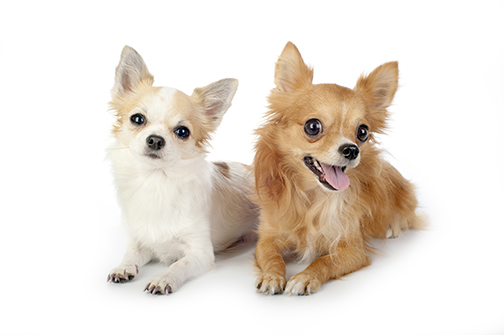
Importance of Socialization
Socialization is important even if it is just you and your Chi. Try to prepare and introduce your Chi to new people, dogs, and other animals early on. Chihuahuas and children can get along well as long as you teach kids how fragile the Chihuahua is and that one small mistake can permanently injure and seriously hurt the puppy. When introducing your Chi to children and teenagers, it is best to always supervise to protect your fragile Chi. When bringing a baby in a Chihuahua home remember that your Chihuahua used to be the baby of the house. You will want to slowly introduce the baby sounds and scent to your Chi and reward your pup for staying seated or laying down. Always reward and pet your Chi when the baby is in the room and slowly bring them closer together. Never take your dog out of the room to bring the baby in, as you want your Chi to associate good things with your new baby.
Be incredibly careful when you Chi is around other dogs or cats. Cat can easily scratch your vulnerable Chi’s eyes and cause major damage. Chihuahua’s are very brave and have no problem running up to and challenging larger dogs, some of which may be trained to chase, attack, or kill smaller animals. Never leave your Chi unattended when outside, even in your back yard. Your Chihuahua is prey to wild animals and larger birds. Be familiar with the wildlife in your area and take precautions. This is true for both Chi puppies and adults. Coyotes have also been known to attack some dogs.
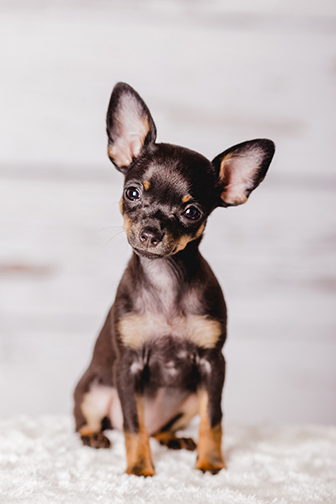
Understanding Your Chihuahua’s Behavior
Here are a few behaviors to be aware of to better understand your Chihuahua. When your dog displays a wagging tail and lowered head as you walk in the door, she is submitting to you.
A lower body with a tucked rear, an accident or maybe rolling over reflects extreme submission.
Nervousness can be displayed as a yawn, drooling or panting can mean your pup is extremely nervous or car sick.
If you see her teeth exposed in a stiff upright position and staring directly at you or someone else, this is very dominant behavior.
When it is time to play, she will have her elbows on the ground and rear in the air with a wagging tail.
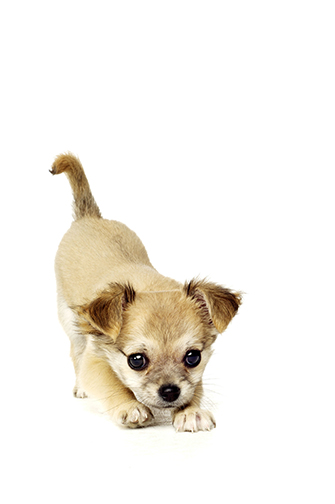
Accidents Will Happen
Once you pup is house trained and you suddenly start to see accidents happen, this could mean there is a physical or emotional issue.
If you see blood in her urine, she likely has a bladder infection and needs to be taken to the vet right away. In my experience with my Chi, antibiotics cleared that up right away.
Your pup may also have an upset stomach and diarrhea. They tend to soil the same area, so clean, and deodorize the spot as soon as possible and move your Chi to another area or room.
For male dogs, you can use dog deterrent odor or belly bands. Spaying helps as well.
Submissive urination usually happens in young females as you walk in the door and greet them. Please do not punish for this behavior, as they will usually grow out of this as they gain more confidence.
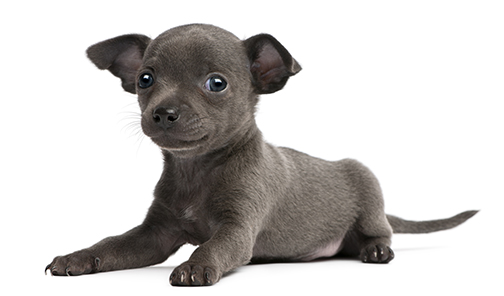
The stress from separation anxiety can also cause urination. When you leave your pup for work or errands, try not make it a big deal.
If you can, start to leave your pup in short spurts, for example run a short errand and return and then slowly build up to running several short errands. This will help so that when you must leave for a full day for work, it will not be such a shock for your Chi.
Drooling, scratching, and escape oriented behavior are also signs of separation anxiety. According to veterinarians and professional dog trainers, dogs will never act out intentionally or in spite.
Keep in mind, your pup can also suffer from crate anxiety, but not separation anxiety. In this case, leave her loose in a puppy proof room including gates.
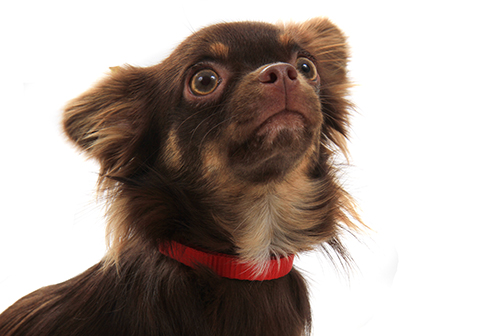
Acting Out and Separation Anxiety
When your sweet innocent pup has caused home destruction to your shock and dismay, keep in mind it was not done out of spite!
Being left alone as a highly sociable Chihuahua puppy that you have already started to create a close bond with will be stressful for her at first. After all, she is dependent upon you and suddenly you are gone.
Chi’s will react by becoming agitated and trying to escape the confinement they have been left in. You may see destruction around doors and windows. Punishment after this behavior will not work and will heighten their anxiety levels.
To treat separation anxiety and stop the destruction, no matter the condition of the home when you return, greet your pup calmly and normally. The best cure as previously noted is to slowly leave her alone on short time frames and work up to full days. Even if you can come home from work for lunch that will break up the day and help. This was the perfect solution for me, as I worked five minutes from home and would come home for lunch and spend quality time with my pup including taking her outside.
Leave your pup several safe toys for her to play with while you are away. Rotating the toys also help and you can include interactive toys, so she does not get bored.
Another technique is to practice a few tricks with your pup an hour or so before you leave.
A Scared Chihuahua
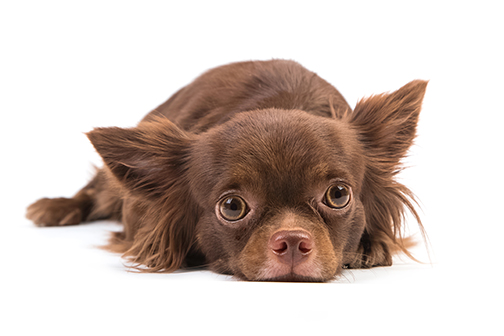
Although most Chihuahuas have a very brave personality and demeanor, some do develop fears. These can be overcome with behavior modification.
Work with your pup slowly at a pace where she feels comfortable with. Commons fears of Chihuahuas are strangers, dogs, care rides, thunder or being left alone. Most chihuahuas are cautious of strangers, so never push your pup to be held or petted by someone she does not know.
Ask strangers to ignore your pup at first and eventually your Chi will be curious and sniff them out in her own time and decide if this person is ok or not.
Chihuahua intuition is spot on. My Chihuahua has warned me a few times and those strangers to her turned out to be not so nice. As we talked about before, let strangers know, including family members your pup has yet to meet, not to stare directly at your pup, as she will see that as a threat.
If your Chihuahua is afraid of thunder, best practice is play with your pup and display happy behavior while it is thundering. You can give her treats to reward her for her calm behavior.
Aggression and Safety
So, you have probably heard that Chihuahuas bite. Actually, most Chihuahuas do not bite.
If you see any type of aggression in a Chihuahua, it is usually because they are protecting their special person or are worried for their own safety.
Keep in mind how small they are, and that things, people, animals, environments, and situations can be scary to them, especially as a puppy. If you plan to hand your Chi to someone, make sure you do it rear first, as that seems to be less scary for them.
The best thing you can do is to slowly introduce your Chi to new environments, animals, and people so that they feel safe and comfortable.
Barking is No Fun!
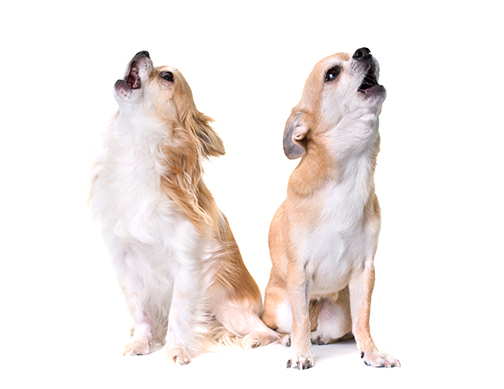
No one likes a dog that is always barking, especially your neighbors. It is fine to allow her to bark for a few moments at strangers. You can then call her to you to stop the behavior and distract her with a basic command and even a toy.
If you Chi continues to bark, consider that maybe she needs some attention, a walk or she could be frustrated or even not feeling well. You can also try to change the environment and move her to another room with you of course.
When you start your training process with your Chihuahua with a positive outlook and the mindset of guiding your pup, you will achieve so much more together. Don’t be afraid to add obedience classes to your training program. Ensure the classes don’t include outdated methods of yanking or jerking and chain collars, as your Chihuahua is way too good and important for that scenario.
Your Chi may be too excited or nervous to be perfect in the first class, so attending the same class twice can be beneficial for your pup. Remember, your smart Chihuahua has the largest brain compared to body size of any breed. Exercise her brain power to create a stronger bond with your Chi and a lifetime of fun learning experiences.
There will be times however when you will have to say no and even ignore your Chi and her irresistible eyes and expressions for just a moment or two to make a point, but then of course you can give her a treat and lots of kisses.
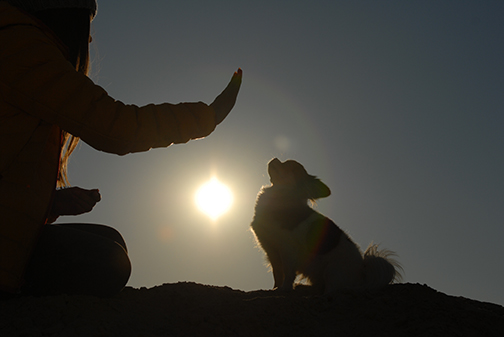
Chihuahua Dog Care
Quick Links for the main topics you will find on Love Your Chihuahua
